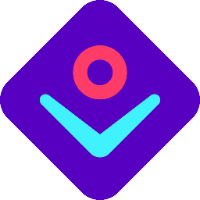Importance of atingi’s course information
Understanding atingi‘s course information
Course information for learners
This information will be visible for enrolled learners and the general public when opening your course for the first time. It can always be seen under the course Information tab. These information help learners to understand what to expect in your course. Further information are visible for legal reasons, e.g. license and owner of the course.
- Description: Here you can write 2 or 3 sentences or a brief description of the self-paced learning. This description is the first information they can see about your course when deciding to enroll.
- Who is this course for? Describe your target audience briefly so that learners can understand if the course fits to their needs and background.
-
What will you learn? Add your SMART learning
objectives here. SMART goals make objectives clear, realistic, and trackable. SMART
goals are:
Specific – clear and focused
Measurable – trackable with evidence
Achievable – realistic and attainable
Relevant – aligned with your purpose
Time-bound – have a clear deadline
- How long is this course? Add the approximate amount of time a learner would need to finish the course if they would learn without interruption.
- Certification: Select the type of certificate awarded in your course from the options provided. You can select more than one, if that is the case in your course.
- Certificate after assessment: Any certificate which requires learners to pass a knowledge check prior to sending the certificate. This is the case for any self-paced course
- Certificate of Participation: Certificates which are send after participating in webinar sessions and other synchronous learning activities.
- Course Provider: Add the name of the course owner, e.g. GIZ.
- Course Contact: Provide the email address of a person to be contacted for course related questions.
- License: Add the license of your course. You can decide which license you obt for. However, we strongly recommend using creative commons licenses (Creative Commons). If you would like others to adapt your course content, please use a CC BY, CC BY SA or CC BY NC SA license.
- Additional Information: Add any other information about your course that is relevant to your learners. For example: recommended browser, course version, link to other useful courses or what the learner needs to interact with the content, a stable internet connection.
- Recommended Courses: Add the link to any other course on atingi that you would like to recommend to your learners.
Other course information
The following information are relevant for atingi’s reporting and monitoring. This way we can understand and manage our courses systematically. This information is not visible publicly.
- Course title in English: Add an English course title if your course is published in any other language.
- Course Developer: Enter information on all service providers, who were involved in the course creation and/or production. E.g., instructional designers, subject-matter experts, video creators. Please separate by comma.
-
Instructional Format: Choose the instructional format that best aligns with how the course
content is structured and delivered.
- Community hub (Space for continuous knowledge exchange)
- Microlearning course (up to 15 min)
- Self-paced course (up to 4 hours)
- Blended training (face-to-face instruction with online learning)
- Webinar
- Authoring Tool: Please select the authoring tools that may have been used for the course production. This information helps us to provide better guidance and advisory services on the use of different tools on atingi.
- Authoring Tool (Other): In case you have selected “Other”, please identify the authoring tool used.
Filtering Options:
The following information are used to filter all public courses in the atingi overview of all courses. Learner can filter for their language preference and topic of interest to find suitable courses for their needs. Private courses are not visible in our course overview to learners. However, we use this information for reporting and monitoring purposes. Please fill this information in for all courses.
- Topics: Please select a maximum of three different topics that fit best to describe the content of your course to learners.
- Languages: Please choose your course language among the choices in the dropdown menu. If your course language is not in the list, please contact your customer success manager
- Other languages: Please add the language of your course if it is not part of the dropdown menu above.
-
Location: Is your course
localised to a specific region, please let us know. If you are unsure which
region your country belongs to according to the standard geographic regions of
the UN, please click here. Example: Northern Africa, Central America,
South-eastern Asia, etc. If the course content does not apply across any specific
location, please choose “global”.
